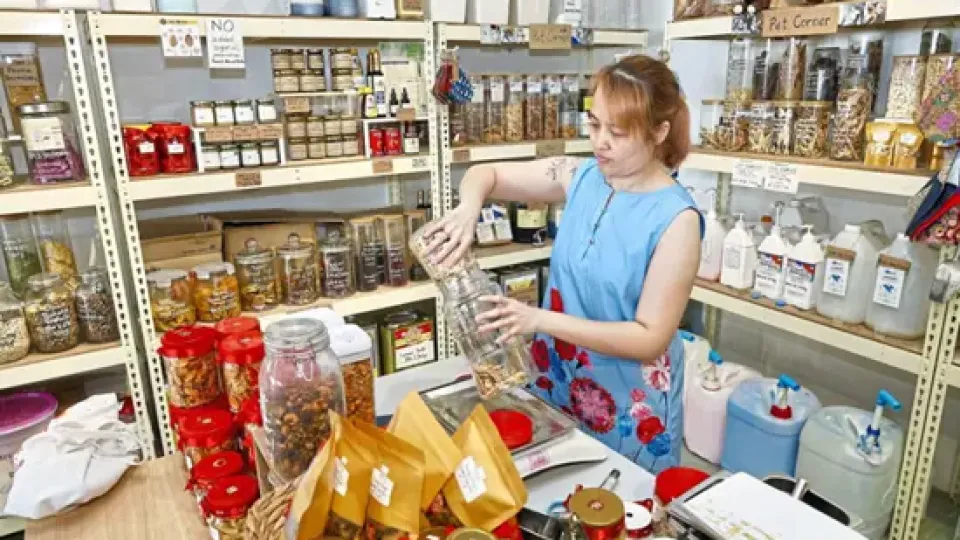January 27, 2025
PETALING JAYA – The zero-waste movement is gaining steam again following the disruption caused by the Covid-19 pandemic, which saw an explosion of disposables as home-bound consumers were forced to rely on food and parcel deliveries.
There is an increasing awareness among consumers and businesses on the importance of cutting down on the 38,000 tonnes of trash that are choking Malaysia’s landfills and rivers.
According to Alam Flora, an average of about 38,000 tonnes of solid waste is sent to more than 100 landfills in Malaysia each day.
In Kuala Lumpur alone, the 2,500 tonnes the nation’s capital produces per day could fill up the PETRONAS Twin Towers in only one week.
According to a handbook from a non-governmental organisation called Zero Waste Malaysia (ZWM), a zero-waste lifestyle advocates using less of everything such as single-use packaging and containers and buying only what is needed.
But despite the increasing awareness of adopting a zero-waste mindset, obstacles still remain, says Tasha Sabapathy, ZWM’s senior programme and communications officer.
During the pandemic, worries about Covid-19 were more prominent compared with environmental issues, she said.
“Once everything returned to normal, people were beginning to make bigger links between climate change and health.
“We have seen an increase in support for our work from the private and public sector over the years, with ESG (environmental, social and governance) regulations coming in and pressure for setting sustainability goals.
“The awareness is increasing – this is evident in the support from the community and how we ourselves have grown into a Facebook group of over 50,000 people,” added Tasha.
Jayne Lee, who runs the Minimise Zero Waste store in Subang Jaya, said she started getting more regulars to her store since last year.
She sells food, cleaning agents and soaps in bulk, with customers having to bring their own containers or packaging.
“More and more people are open to the idea of refilling their detergent bottles and there is a strong demand for natural bath soaps as people are turning away from synthetic chemicals,” she said.
Hwang Pei See of the IpohRefill Zero Waste store has also seen steady support from the community, even though it has barely been open for a year.
“Neighbouring businesses will send their workers to refill their dishwashing liquid and floor cleaners, while seniors and retirees will come to replenish their own detergent,” said Hwang.
He added that the rise and renewal in support does not mean that it was all smooth sailing for these businesses due to intense competition.
Since the pandemic lockdowns ended, three zero-waste stores in the Klang Valley have closed down.
Tasha says zero-waste stores face unique challenges compared with conventional retailers.
“Retail markets have spoiled us with (an abundance of) choice, with different product options offered at extremely low prices.
“Zero-waste stores sell what is necessary, and that means fewer choices. Also, not all customers who walk into a zero-waste store want to refill the products themselves, and expect this to be done for them.
“The additional time to refill something instead of having it ready-packed is also what some consumers want to avoid,” she said.
Even though the movement is spreading, ultimately, the government must step in to make it mainstream, says Poh Phiak Kim, who coordinates supplies to some zero-waste stores.
“It has to come from the top because you need policies to drive implementation. The groundswell is still not big enough in Malaysia,” she said.
Lee concurred, saying that a big reason her store has got a lot support was because of the massive recycling programmes of successive assemblymen and local councillors in Subang Jaya.
“In Subang Jaya, the awareness about this lifestyle cuts across from grandparents to grandchildren, so when we explain things, they catch it very fast and understand quickly,” she added.

